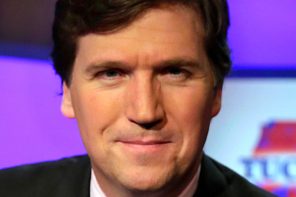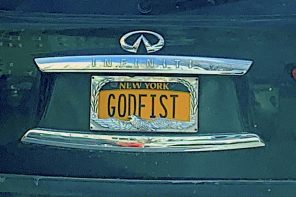I’ve spent two days thinking about how to comment on the broad-based cultural implications of the recent violence in Arizona and not participate in the very “lack of civility” that we all know is a problem.
I can cite all kinds of troubling ways in which the people with whom I disagree invoke violent metaphors. The problem is, that those people with whom I disagree often honestly believe that that’s what people on “my side” do too. To make it worse, even when the best of our leaders assert that “both sides do it and it needs to stop,” our media culture is so divided that most of us couldn’t come up with examples of our own side “doing it.”
I find appalling the way that Sarah Palin talks about “re-loading” in the face of criticism and even more so the target map circulated by her PAC that received so much coverage this past weekend due to Gabriel Giffords’ prescient criticism of it. But I’m guessing few readers of RD know what those who get their news from Fox News know: there was a similar fundraising appeal from the Democratic Leadership committee in 2004, only with bullseyes instead of crosshairs.
I am sympathetic to the counter-arguments that it not the same because liberals don’t bring guns to rallies and so on but debating who is right about this gets us nowhere. Worse yet, we end up sounding like kindergarteners arguing over who is worse. Enough already.
As leaders and pundits call for civility and mutual respect, it occurs to me that the enemy of civility might not be lack of respect at all. If you really believe your opponents are evil and ruining the country, does it makes sense for someone to tell you to “respect them?” Not really.
Maybe the enemy of civility isn’t disrespect but certainty. A healthy dose of doubt—about our own convictions about what is best, as well as about our own understanding of our opponents’ goals and interests—won’t paralyze us into inaction but, rather, temper our approach with humility.
When I recognize the limits of my own understanding, I can see value in opposing opinions as potentially leading to a better result drawn from collective wisdom. Isn’t that the idea of democracy anyway, instead of factions organizing to get what they can and protect their own interests?
Of course, some consider doubt to be the opposite of faith, which might help explain why, in our culture, we claim certainty with such readiness. But it’s not a necessary pairing. After all, people in all the world’s religions, and people with no religion at all, recognize the limits of finite human knowledge and the value of humility.




